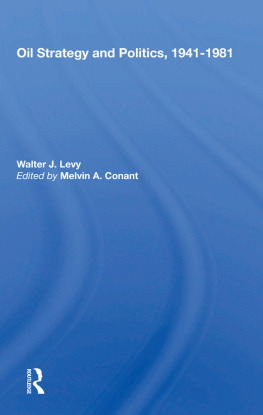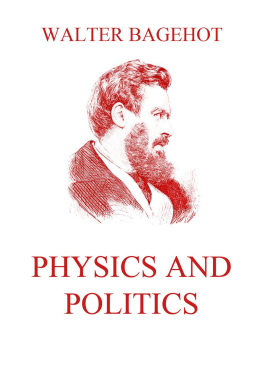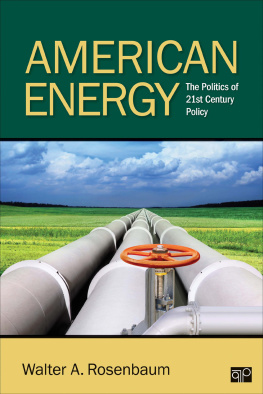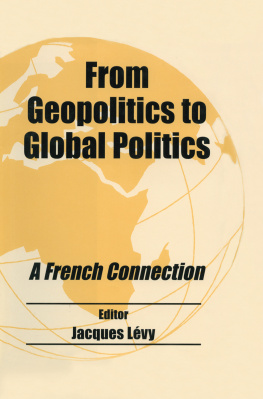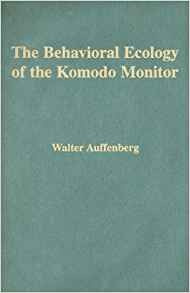First published 1982 by Westview Press
Published 2018 by Routledge
52 Vanderbilt Avenue, New York, NY 10017
2 Park Square, Milton Park, Abingdon, Oxon OX14 4RN
Routledge is an imprint of the Taylor & Francis Group, an informa business
Copyright 1982 by Walter J.Levy
All rights reserved. No part of this book may be reprinted or reproduced or utilised in any form or by any electronic, mechanical, or other means, now known or hereafter invented, including photocopying and recording, or in any information storage or retrieval system, without permission in writing from the publishers.
Notice:
Product or corporate names may be trademarks or registered trademarks, and are used only for identification and explanation without intent to infringe.
Library of Congress Cataloging in Publication Data
Levy, Walter J.
Oil strategy and politics, 1941-1981.
Includes index.
1. Petroleum industry and trade-Addresses, essays, lectures. 2. Petroleum industry and
trade-Political aspects-Addresses, essays, lectures. I. Conant, Melvin A. II. Title.
HD9560.5.L46 333.8'232 82-1963
ISBN 0-86531-403-9 AACR2
ISBN 13: 978-0-367-01934-1 (hbk)
Walter J. Levy, international oil consultant to governments and companies, has completed forty years of extraordinary thinking and writing about oil. Those four decades span the era in which the obtaining of oil first became of great commercial consequence and then the object of governmentsa period in which the strategic dimensions of oil had become early apparent to only a comparative few who were closely involved in the terms on which it would be available. Today, the topic of oil pervades the interests of most states.
Those fewin international companies and in the highest reaches of governmentwho were fully aware of the growing importance of oil usually lacked the background to conceive how to deal with all its manifestations. It is exactly in these circumstances that Mr. Levy attracted notice. To a great extent, it is he who has defined the great issues of policy and of action revolving around access to oil. As the reader will discover, the intellectual ability of the author to look at the universe of oil has greatly informed public and private debates.
Born in Hamburg on March 21, 1911, Walter Levy was educated in Germany. He attended the universities of Heidelberg, Freiburg, Berlin, and Kiel, and received an LLD from Kiel in 1932. In 1933 he moved to London and continued his studies with special emphasis on the theory and application of statistics. As an assistant editor of the Petroleum Press Bureau, he began to deepen his knowledge of oil, which he then applied to the issues that would arise in wartime. As war came, Sir Mark Turner of the Ministry of Economic Warfare encouraged Mr. Levy to share his ideas, counseling on blockades and the vulnerabilities of the German petroleum industrial plant. In 1941 he came to the United States where his writing appeared in World Petroleum and Fortune; subsequently, Mr. Levy became part of the Office of Strategic Services (OSS) concentrating his already recognized analytical talents on the significance of critical aspects of petroleum logistics.
Toward the end of the war, Mr. Levy was asked to assist further in oil supply to liberated areas. Soon thereafter, as chief of the Petroleum Branch, Economic Cooperation Administration (the Marshall Plan), he assisted in oil aspects of peace treaties and in the enormous task of helping assure petroleum supply to Europe in the postwar period of recovery and reconstruction. Robert Marjolin, who was then secretary-general of the Organization for European Economic Cooperation, credits him with playing a "decisive role" in the success of the Marshall Plan.
In 1949 Mr. Levy formed his own consulting firm and was soon immersed in the commercial interests of clients, among them the giants of international oil and the larger concerns of governments. His experience was applied to petroleum aspects of the Korean War (1950). He was deeply involved in the critical U.S. attempts to cope with the Iranian oil crisis of 1951 and the repercussions of Suez (1956).
The Iranian crisis summed up many of the issues certain to return and to plague the relations between the oil producers and importers. Of that key incident, Lieutenant General (USA, Ret'd.) Vernon A. Walters (now ambassador at large) has written of Mr. Levy and the Harriman Mission which attempted to mediate:
On numerous occasions he explained the realities of the world oil production and distribution situation to the Iranian Premier, Oil Minister and other senior officials. He earned their respect and admiration despite the fact that they had not necessarily liked the realities which he was drawing to their attention.
In addition, Walter's invariable, cheerful good humor during the months of extreme heat in Tehran in a threatening and sometimes dangerous situation won for him the unstinting admiration of all members of Governor Harriman's party. His low key approach, his courtesy and obvious knowledge of the subject was of enormous assistance on this mission.
Moreover, the World Bank and the Indian government enlisted his aid on the latter's oil policy. From the earliest years of the Organization of Petroleum Exporting Countries (OPEC)-indeed, well before its founding (1960) and thereafterhis counsel has been widely sought on the ramifications of the extraordinary period of great change in the control of oil. Among others, the governments and companies of Venezuela, Canada, Indonesia, Malaysia, Thailand, Japan, the United Kingdom, Germany, Spain, and Algeria have each sought his counsel on energy in general and oil in particular; he has also had an extensive role in U.S. oil affairs, governmental and private. The European Economic Community, the World Bank, and the United Nations have oil concerns in which he has been active. Mr. Marjolin, mentioned earlier, went on to become a vice president of the Common Market, and he writes of the help that he obtained from Mr. Levy on perplexing oil questions, Mr. Levy being able to be "a catalyst because of the confidence which he enjoyed."
For the United States, he has been a source of judgments about oil to presidents, and many of the papers selected for this volume are the outgrowth of memoranda provided secretaries of state and the White House. In fact, it might be hard to find a crisis affecting oil supply over the past forty years in which his talents were not engaged. No one would claim that his counsel has always been heeded; one can detect when this has occurred by noting the increasing frequency with which certain topics reappear: for example, the essential need for coordination among allies on oil.
What accounts for the insight and skills of an adviser who moves in the oil circle? Sir David Steel, chairman of British Petroleum, wrote of this when he commented that Mr, Levy's "very special contribution" is due to his "personal diplomatic gifts combined with a thoroughly realistic understanding of the oil business. He talked economics to the diplomats and diplomacy to the oil companies, gaining the confidence of both to a remarkable degree. For virtually an era I and many colleagues greatly valued his impartial advice offered from a position which his personal qualities and experience made unique."


